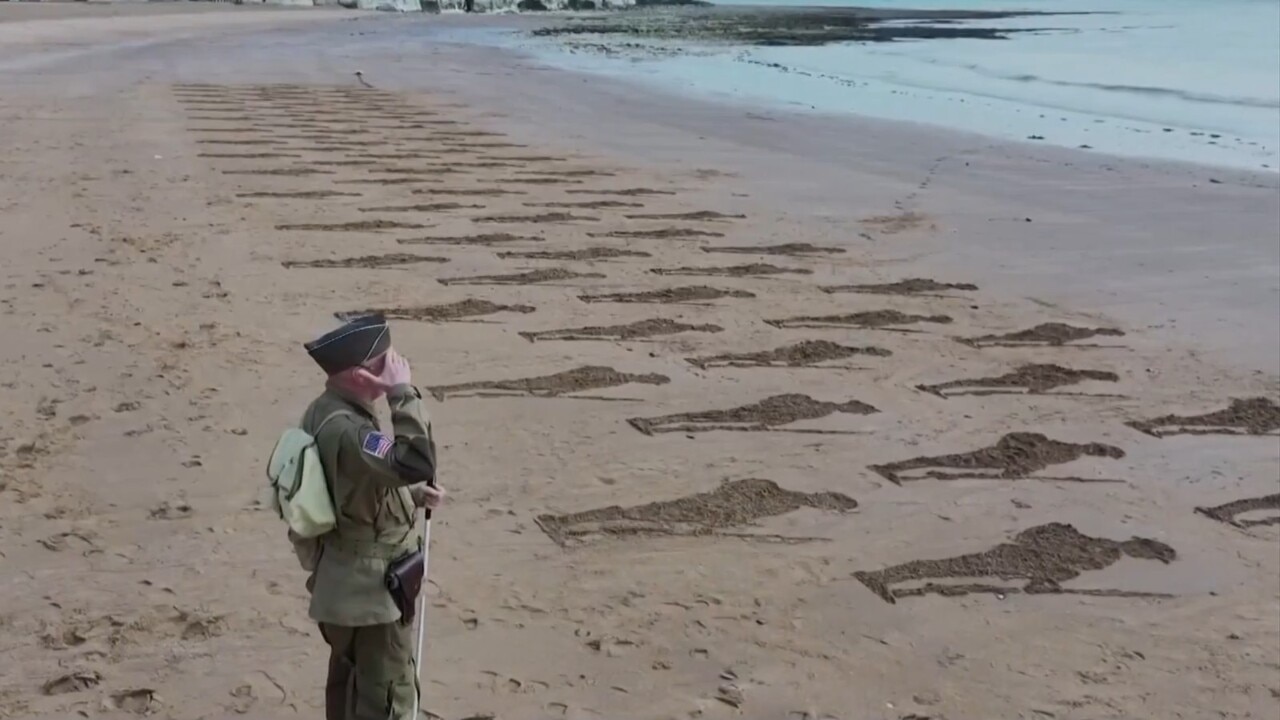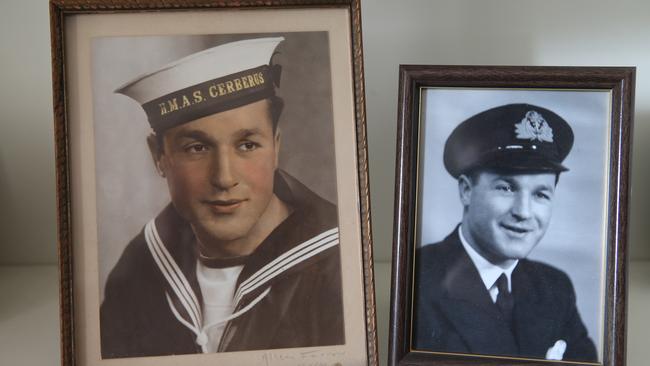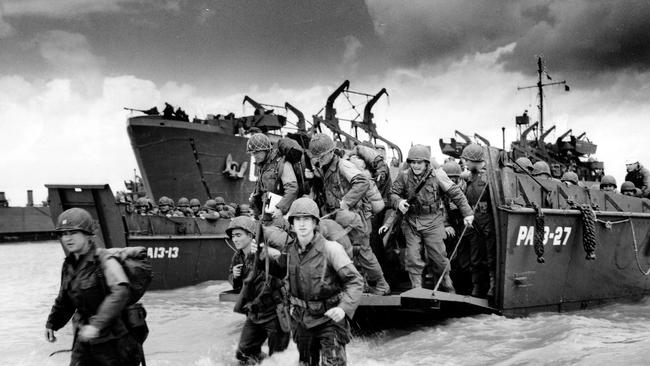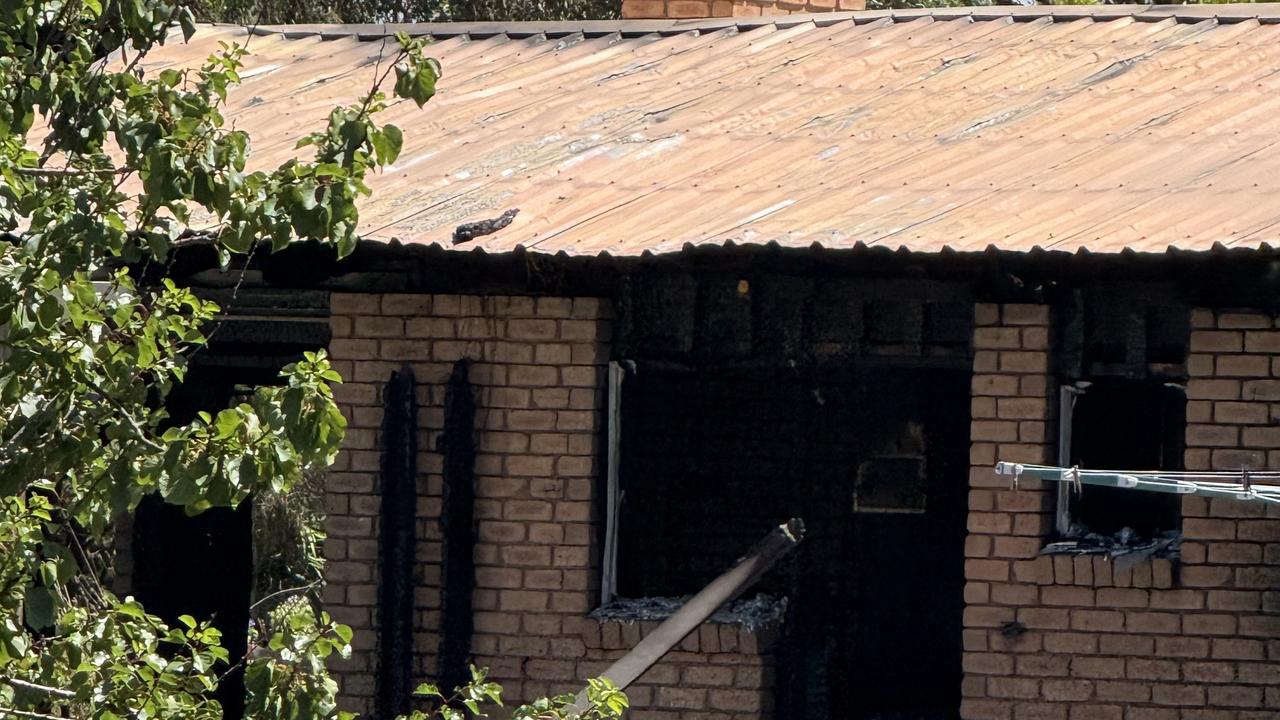Patrick Carlyon: How promising Hawk Sub-Lieutenant Dick Pirrie, became a D-Day hero
When Andrew Pirrie sent a letter to his brother Dick in 1944 it went unanswered – the hopeful footy player known as “Digger” had been killed on his 24th birthday in the D-Day Invasion.

Victoria
Don't miss out on the headlines from Victoria. Followed categories will be added to My News.
Andrew Pirrie was stationed at an air force training base in Sale when he heard about “the Invasion”.
He was worried, and immediately wrote to his oldest brother Dick, who had sacrificed his promising footy career at Hawthorn to join the navy.
Over five pages, Andrew detailed the goings-on at home. Who was marrying who. Who passed on their best. The Hawks were fading, Andrew mentioned – two wins, four losses, in recent weeks.
Andrew also wished Dick a happy birthday, which had been five days earlier.
“All this week I have had you in my mind a lot more than before,” he wrote.
“We just got word down here early in the morning about the Invasion and I sincerely mentioned you in my prayers. I went to Communion for you in the morning. It was the least I could do – or should I say the most?”
Andrew’s letter would eventually be returned to him, unread.

Sub-Lieutenant Dick Pirrie had been killed on June 6, 1944, in the D-Day Invasion – the day of his 24th birthday.
He piloted a small landing craft close to the Normandy shore, where he reported the German gun positions to the Allied invasion fleet at sea.
The job was considered extremely dangerous, verging on suicidal. Pirrie was picked for the role for his observational awareness in adverse conditions. He carried it out well – on that section of Juno beach, every soldier got safely ashore.
His boat, amid scenes depicted in the opening sequence of Saving Private Ryan, was hit by a mine or enemy shell. He was killed instantly.
A generous soul said to start and end the day with a smile, Pirrie would be mentioned in dispatches for his leadership and determination in the chaos of his final hours.

He had been a school prefect who sang in the church choir. When on service leave in London, Dick was known for his renditions of Waltzing Matilda. A lone Aussie placed with Canadians and Brits, he was nicknamed Digger.
A senior officer wrote to his mother: “The whole flotilla is deeply grieved by the loss of a so dearly loved and much respected friend. His friendly nature, his cheerful willing devotion to all of his duties and his firm belief in the ultimate good of all things made him an officer with whom we are proud to have served.”
Pirrie remains cherished 80 years later.
On Tuesday, his family will present his medals to the Australian War Memorial. They were recovered recently when a dealer notified family members that they had come into his possession.
In Portsmouth in England, Pirrie’s name will be placed on a memorial wall as the Australian representative for the 12 Allied nations involved in the D-Day landings.

He grew up two streets from Glenferrie Oval, a member of a family footballing dynasty which continues to this day.
Dick Pirrie played three games on a wing for Hawthorn, including at least one alongside his brother Kevin.
Kevin heard of his brother’s death while fighting at Kokoda, where he was also mentioned in dispatches for his bravery.
He returned from the war emaciated and diseased, but went on to play more games for Hawthorn.
Kevin was said to be inspired by his older brother’s example, in what is described by his son Michael as a role of a remaining brother-in-arms.
Kevin applied a strict discipline and military-style fitness in an approach later popularised by Hawthorn coach John Kennedy.
Their father, also Dick, played for Hawthorn.

Their uncle Mick McGuire was thought to be the youngest ever player in the VFL (15) until Essendon’s Tim Watson bested him by a few months three generations later. Throughout life, McGuire kept a photo of his fallen nephew on his desk at home.
Kevin’s son Stephen played for Richmond, St Kilda and Essendon. Ned Moyle, the son of Dick Pirrie’s niece, now plays at the Gold Coast Suns.
Dick’s recovered effects included a June 5 letter he had begun writing – but never finished.
He spoke of receiving general absolution from a reverend. He hoped and trusted in God that he could conclude his letter after D-Day.
“My dearest mother, Dad and boys,” he wrote. “Well, my dears, the pressure is on now and as soon as the weather improves we sail for the greatest event in the history of the world. By the time you receive this you will surely have heard some of the bare details.”
D-Day changed World War II. The Allies pushed back against Germany’s spread over Europe.
And a Hawthorn family has since mourned the loss of the first Australian, of 13 on that grim day, who died in one of the most crucial moments of the twentieth century.




